Professor Bogda Koczwara
Keynote speaker in 2025
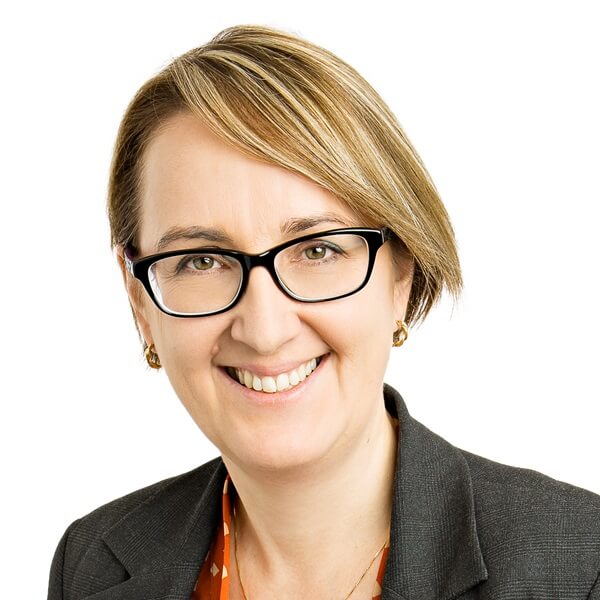
26 Years of Inspiration
Over the last 26 years, we’ve been privileged to engage with pioneering cancer researchers. Their expertise has been invaluable in illuminating and enriching the forefront of advancements, as they lead the way through world-class cancer research.
Professor Bogda Koczwara
Keynote speaker in 2025
Professor Koczwara is an internationally recognised clinician researcher with expertise in cancer survivorship and supportive care. She established one of the first cancer survivorship program in Australia and the longest running cancer survivorship scientific meeting in the world. Her research has contributed to key advancers in the field of survivorship epidemiology, symptom monitoring, self-management support, and the use of patient reported outcomes in cancer. In April 2025 she commenced her position as an inaugural Director of the Australian Research Centre for Cancer Survivorship. The Centre, created through a joint investment of $40 million from UNSW and Cancer Council NSW, was established last year with a focus on improving the care and wellbeing of cancer survivors through transformative and impactful research.
Keynote speaker in 2012 and 2024
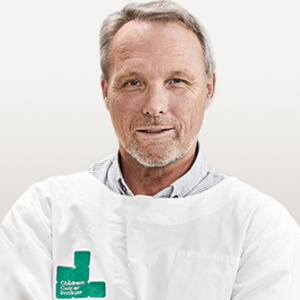
Professor Murray Norris AM
Professor Murray Norris AM is Joint Head of the Experimental Therapeutics and Molecular Oncology Group at Children’s Cancer Institute. In 2016, Children’s Cancer Institute and Sydney Children’s Hospitals Network launched the ZERO Childhood Cancer national personalised medicine program – the most ambitious and comprehensive child cancer research program ever undertaken in Australia. ZERO has enabled all newly diagnosed and relapsed high-risk child cancer patients in Australia to have tailored therapy targeting the specific genetic and biological characteristics of their individual tumour. ZERO will become available to every Australian child with cancer by end 2023, irrespective of type of cancer to level of risk. In 2015, Murray was appointed a Member of the Order of Australia (AM) for significant service to medical research as a molecular biologist and for pioneering developments of treatments for cancer in children.
Keynote speaker in 2005, 2007, 2013 and 2023

Professor Robyn Ward AM
Professor Robyn Ward AM is inaugural Executive Dean and Pro-Vice Chancellor of the Faculty of Medicine and Health at The University of Sydney. Professor Ward is an academic leader, cancer researcher and medical oncologist training both as a physician and a scientist, and for many years has played a key role in health policy in Australia. Throughout her career Robyn has shown a sustained capacity for innovative research into the range of issues that underlie cancer. In particular, she has made several important contributions to translational cancer research in bowel cancer. In 2013, Robyn was awarded the Member of the Order of Australia (AM) for significant service to medical research and patient care in the field of oncology.
Keynote speaker in 2016 and 2022

Professor Karen Canfell AC
Professor Karen Canfell AC is the inaugural Director of the Daffodil Centre, a joint venture between Cancer Council NSW and the University of Sydney. Her research over the last 20 years has had a major impact on cervical cancer prevention policy decisions in Australia and globally. Karen and her team led key aspects of the World Health Organization strategic plan for cervical cancer elimination and development of new global guidelines for cervical screening. Karen was appointed as a Fellow of the Australian Academy of Health & Medical Sciences in 2019. She has received several major awards including the 2021 Jeannie Ferris Cancer Australia Recognition Award, the 2021 NHMRC Elizabeth Blackburn Investigator Grant Award for Leadership in Health Services and the 2022 Public Health Association of Australia NSW Public Health Impact Award. In 2024, Karen was appointed as a Companion of the Order of Australia for eminent service to medicine as an epidemiologist, particularly through cancer research, to tertiary education, and as a mentor and leader.
Keynote speaker in 2021

Professor John Rasko AO
Professor John Rasko AO, Director of Cell and Molecular Gene Therapies at Royal Prince Alfred Hospital, is a world-renowned gene therapy physician-scientist and practicing haematologist/pathologist. His research has been successful in uncovering new mechanisms of leukemia, understanding blood hormones and their mechanisms of action, and clinical trials of new biological therapies for cancer and bleeding disorders. With funding from Cancer Council NSW, Professor Rasko and his team have developed new personalised patient therapies to improve outcomes for pancreatic cancer.
Keynote speaker in 2009, 2015 and 2019

Professor Ian Frazer AC
Professor Ian Frazer AC is recognised as co-inventor of the technology enabling the HPV vaccines, currently used worldwide to help prevent cervical cancer. He continues to lead work on new vaccine technologies. Ian was recognised as Australian of the Year in 2006 and was appointed Companion of the Order of Australia (AC) in 2012. Most recently, Ian was appointed chair of the federal government’s Medical Research Future Fund.
Keynote speaker in 2018

Professor Anna deFazio AM
Professor Anna DeFazio AM heads the Gynaecological Oncology Research Laboratory at the Centre for Cancer Research, the Westmead Institute for Medical Research, and is the co-lead of the Ovarian Cancer stream at the Daffodil Centre. The focus of Anna’s research is to understand the clinical and genetic factors that influence response and resistance to chemotherapy in ovarian cancer. In 2015, Anna established a major new study, called INOVATe, to optimise the matching of patients with novel molecularly-targeted clinical trials, with the ultimate aim of individualising treatment and improving ovarian cancer outcomes.
Keynote speaker in 2011 and 2017
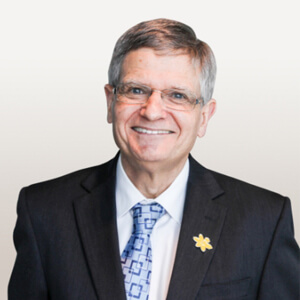
Professor Roger Reddel AO
Professor Roger Reddel AO is Director of the Children’s Medical Research Institute (CMRI) and Head of its Cancer Research Unit. In 2016, Roger, with Professor Phil Robinson, established a new world-leading research project and facility called ProCan. Over the next 5-7 years, ProCan is analysing 70,000 samples of all types of cancer from all over the world to build a database of information to advance scientific discovery and enhance clinical treatment worldwide.
Keynote speaker in 2014

Associate Professor David Smith
Associate Professor David Smith leads the Prostate Cancer research stream at the Daffodil Centre. He is an epidemiologist and health services researcher with specific expertise in issues related to the causes of prostate cancer, the effects of early detection and screening, patterns of care for prostate cancer and improving the quality of life of men living with prostate cancer.
Keynote speaker in 2010
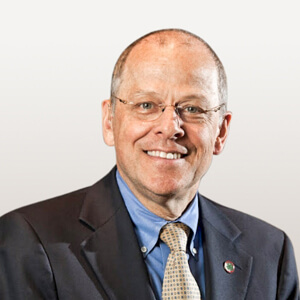
Professor Graham Colditz
Professor Graham Colditz is an internationally recognised leader in cancer prevention research and Deputy Director of the Institute of Public Health at Washington University in St. Louis. As an epidemiologist and public health expert, Graham has received numerous awards including the 2011 Medal of Honour (American Cancer Society’s highest honour) and the 2014 Award for Outstanding Achievement in Cancer Prevention Research.
Keynote speaker in 2009

Dr Michelle McDonald
Dr Michelle McDonald leads the Bone Microenvironment Group at the Garvan Institute of Medical Research. She is a post-doctoral scientist looking to improve strategies for treating bone diseases associated with multiple myeloma and breast and prostate cancers. Over the next few years Michelle’s research is focussing on uncovering what activates dormant myeloma cells and causes cancer to grow in the bone and testing if drugs used for other bone diseases can trigger myeloma cells to go back into hibernation.
Keynote speaker in 2000-2005
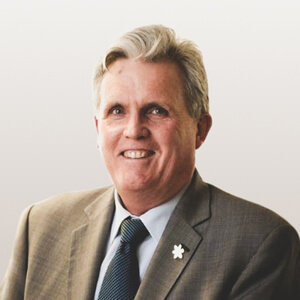
Dr Andrew Penman AM
Dr Andrew Penman AM has undoubtedly saved the lives of thousands of Australians by reframing cancer as a social issue not just a medical one. As CEO of Cancer Council NSW from 1998 to 2012, Andrew pushed the public health focus to reach larger numbers of people by targeting their working and leisure environments. Under Andrew’s stewardship, Cancer Council NSW increased its investment in research, establishing ongoing partnerships with the best researchers in the field. His work in cancer control was recognised by his appointment as a Member in the Order of Australia (AM) in 2010.


